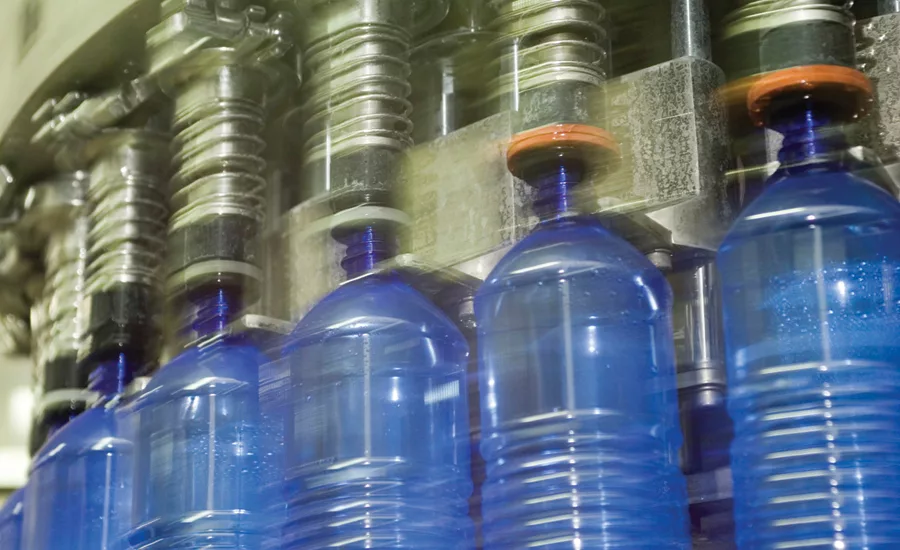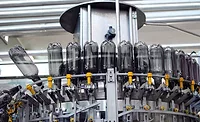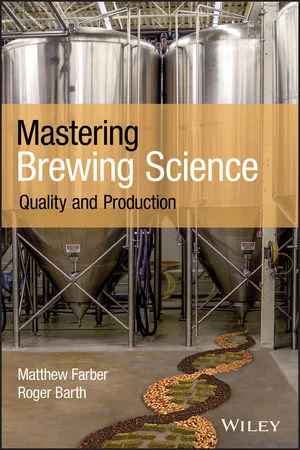Lubricants aid in safety, sustainability and production
Dry, wet lubricants crucial to beverage supply chain

The idiom “greasing the skids” commonly is used when describing a mechanism to help matters run smoothly. It is especially apropos for beverage plants that literally have to “grease the skids” with lubricants like oils, greases, pastes and sprays in order to keep multiple pieces of equipment in the supply chain operating at peak efficiency.
Not only do beverage facilities require lubrication for its many gears, chains, compressors, bearings and slides, but differences in the type of liquid produced or the containers being filled also can change the machinery — and the lubricant — required to run at peak capacity, experts note. Food safety, sustainability and environmental factors also are key drivers for the type of lubricants used, experts say.
Broadly categorized as “wet” or “dry,” lubricants and are used for three main purposes: to reduce friction and keep packages from falling over; to reduce friction between the conveyor chain and the wear strip support; and to reduce friction within the conveyor chain parts, i.e., the knuckle and the pin, according to Chad Thompson, senior program leader for research and development at Ecolab, St. Paul, Minn.
“Wet lubricants are diluted with water. Dry lubricants are lubricants that are designed with the intention of saving water [and] can be sprayed neat (without dilution water) or diluted and applied with infrequent sprays,” Thompson explains. “There are many subcategories of lubricants, which are determined by the lubricant’s main function, which include the products being conveyed, package types, antimicrobial/soil requirements, chain type, etc.”
Among the lubricants Ecolab offers are DryExx, DryExx GF, DryExx PRO, Mikron, Sani Glide and Vektor 100. Its newest offering, DryExx PRO, is an emulsion lubricant that can be used wet or dry, can be diluted with water and sprayed frequently, or can be sprayed neat with no dilution water and sprayed infrequently, Thompson says.
“This new product will allow a plant the versatility of using one product as a wet lubricant and as a dry lubricant,” Thompson explains. “DryExx Pro also functions as a lubricant for a can line on the can transfer… an area where a filled can is moved across a dead-plate [that] is flooded with a wet lubricant to reduce the friction, hydroplane and [to] eliminate unwanted motion that could spill contents from the can prior to closing.”
Lubricants also support safety in the food and beverage industries, Klüber Lubrication NA LP’s Food Market Manager Toby Porter says. “[O]ur NSF H1 lubricants are also ISO 21469 certified, meaning that in addition to the formulation being safe for incidental contact, they’re also manufactured in a certified hygienic environment.”
The Londonderry, N.H.-based company offers a portfolio of more than 200 National Sanitation Foundation (NSF) registered lubricants, including its recently launched Klüberfood NH1 4-002 spray, which works as a water displacement spray to replace non-food grade accessory items.
“Many beverage facilities want to rationalize the number of chemicals and even the number of suppliers being used,” Porter says. “This can be a challenge to try to go to a one-size-fits-all type of lubricant as applications and environments can vary significantly.
“In some cases, it makes perfect sense to use, for instance, one food-grade oil in place of two similar oils where one is H1 and the other is not,” he continues. “In all instances, though, when reviewing, it’s important to consider the different applications to be covered by the lubricant and ensure that the performance of the equipment is maintained and improved.”
A well-oiled machine
To aid in a smooth-running beverage supply chain, Lubriplate Lubricants Co., Newark, N.J., offers a full range of more than 125 synthetic, high-temperature or food-machinery-grade lubricants that are NSF H1. It recently launched Synextrme FRHi-46 synthetic, fire-resistant hydraulic fluid, which is designed for applications requiring high temperature, extreme pressure and anti-wear properties for very severe conditions, says Steve Morrow, vice president of sales.
“Fillers, cappers [and] seamers run at high speeds, which can cause temperatures to rise,” Morrow says. “The proper food-grade lubricant mitigates this concern. It also can extend oil change intervals, thereby reducing disposal costs.
“More food and beverage facilities are using all NSF H1 registered lubricants because they can eliminate sources of potential contamination with hazardous substances while maintaining superior equipment performance,” he continues. “While synthetics initially can cost more to purchase, in the long run, they decrease operating costs and help a beverage plant maintain safety.”
Experts note that lubricants are vital for the beverage supply chain, allowing the proper conveying of packages, increasing line efficiencies and getting more product out the door at the lowest total cost.
“Lubricants support all aspects of the supply chain,” Klüber Lubrication’s Porter says. “… They also contribute to the sustainability of a facility by increasing output, extending component life and decreasing the cost of operation while maintaining food safety. The correct lubricant selection can do all of these things and the benefits can far outweigh the per-liter or per-kg cost of the lubricant itself.” BI
Looking for a reprint of this article?
From high-res PDFs to custom plaques, order your copy today!







